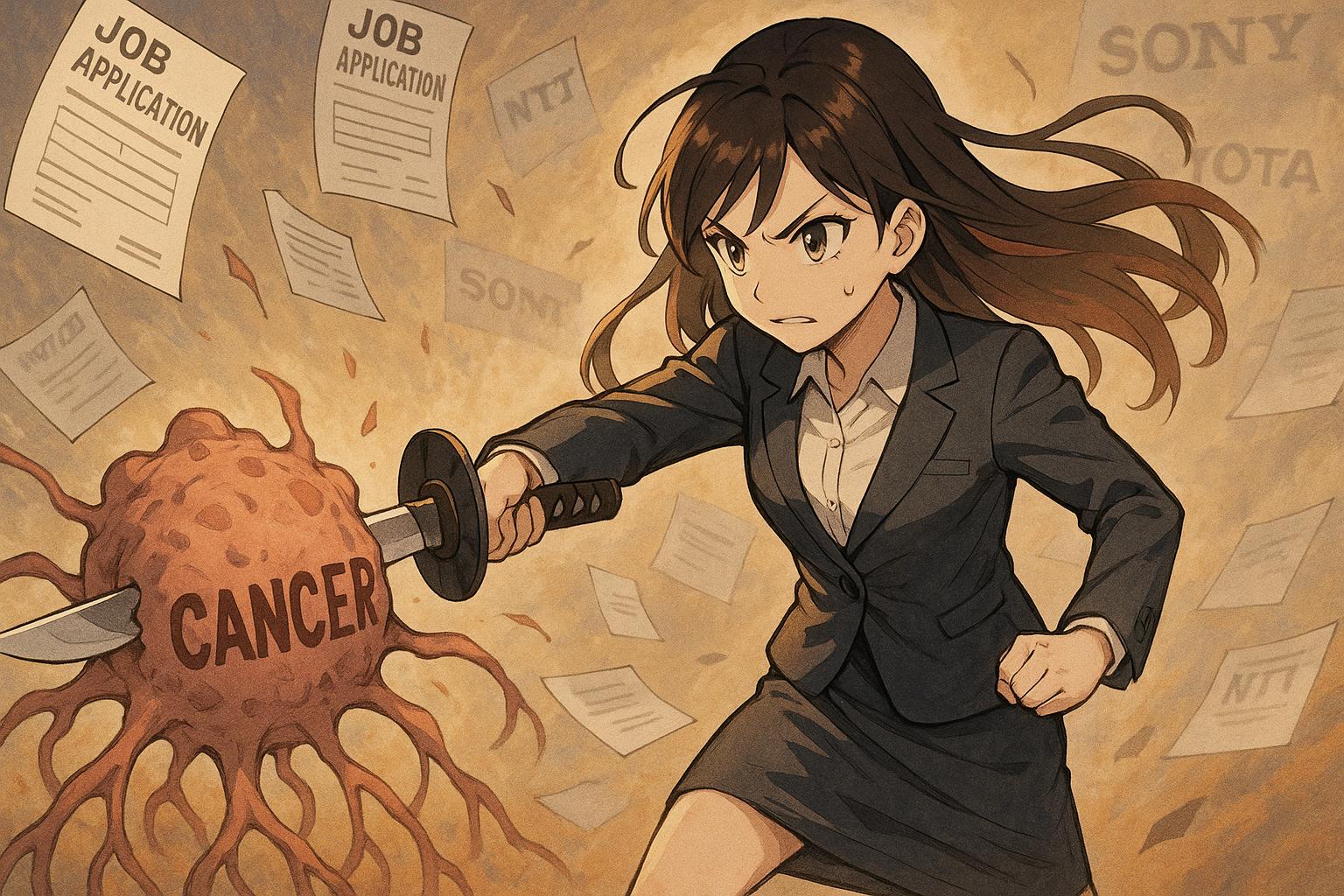Amy McClelland’s journey into the job market has taken an unexpectedly arduous turn. The millennial senior manager has been without employment for 432 days, having submitted 108 job applications without success since her battle with cancer began. Diagnosed with stage 2 breast cancer in March 2024, McClelland, who has over a decade of experience in various leadership roles—including positions at Channel 4 and at Multiverse, the education startup founded by Euan Blair—has found that her health struggles have dramatically impacted her career trajectory.
Despite the claims from many companies regarding their commitment to inclusivity and support for employees facing health challenges, McClelland’s experience paints a contrasting picture. She reflects on her forced break from work to focus on intense chemotherapy and subsequent surgery, a decision she describes as vital for her life but detrimental to her career. “Stopping my career to fight for my life is something I never expected to do at 31. It feels like being hurtled out into space without a tether, after a decade of dedicated hard work,” she noted on LinkedIn.
Before her diagnosis, McClelland had achieved significant success in her career, with her resume even featuring Euan Blair, Tony Blair’s son, who has gained recognition for leading Multiverse amidst considerable challenges. The company has seen substantial financial woes, reporting losses that reached £40.5 million for the year ending March 2023. Despite these losses, Multiverse has maintained a valuation of £1.4 billion, indicative of strong investor interest in alternative education models, particularly in apprenticeships, as employers seek to fill skills gaps in the technology sector.
Though McClelland possesses a wealth of experience, her job applications have often led to no response or rejections after revealing her need for flexible working arrangements due to her health. She recounts one instance when an acquaintance suggested she could contribute to their startup without pay, framed as an opportunity to help her regain her professional bearings. Such proposals feel particularly frustrating given her background. “I found that quite insulting,” she said. “I’ve got a decade of experience with globally recognized brands, and I’m now back where I started being told I should work for free.”
Interestingly, after publicly sharing her story on LinkedIn, McClelland’s situation began to shift subtly. She noted a surge of interest from hiring managers, some of whom had previously overlooked her applications. “It’s incredible to me that I’m able to get this human reaction on LinkedIn, where they see me as a potential candidate,” she commented, illustrating the double-edged nature of visibility in professional circles. However, this newfound interest does not negate the reality she faces: many recruiters still advise candidates with health challenges to remain silent about their conditions until after securing employment, as cancer is categorised as a disability under the law.
McClelland’s story underscores the complex interplay of health, employment, and societal attitudes towards cancer survivors. She cautions others against being too open about their health journeys in the job market. “The only thing that matters is that you get through to the other side of this treatment,” she emphasizes, pointing out the importance of maintaining connections within professional networks. “Knowing who in your network will come through for you if you ask for help is crucial.”
Her experience distinctly highlights the challenges many cancer survivors face when attempting to re-enter the job market, revealing a stark gap between corporate rhetoric regarding inclusivity and the lived reality of those affected. In an environment where significant numbers of increasingly skilled workers are battling their own health challenges, companies must evolve their approach to recruitment to genuinely reflect commitments to diversity and support for all employees, regardless of their personal histories.
At the heart of McClelland’s story is a poignant reminder that while the road to recovery may be filled with professional hurdles, the resilience forged through personal trials can lay the groundwork for a renewed professional identity and success.
Reference Map
- Paragraph 1: [1]
- Paragraph 2: [1], [4]
- Paragraph 3: [1], [5]
- Paragraph 4: [1], [2], [4], [5]
- Paragraph 5: [1]
- Paragraph 6: [1]
- Paragraph 7: [1]
Source: Noah Wire Services
